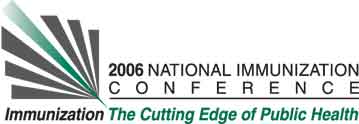Stephen M. Ford, Military Vaccine Agency, US Army Medical Command, 5113 Leesburg Pike, Suite 402, Falls Church, VA, USA, Renata J. M. Engler, Walter Reed National Vaccine Healthcare Center, Walter Reed Army Medical Center, Walter Reed Army Medical Center, 6900 Georgia Avenue, NW, Washington, DC, USA, J. Edwin Atwood, Walter Reed Army Medical Center, US Army Medical Command, Washington, DC, USA, and John Grabenstein, Health Care Operations, U.S. Army, 5111 Leesburg Pike, Skyline 5 Suite 401A, Falls Church, VA, USA.
Learning Objectives for this Presentation:
By the end of the presentation participants will be able to:
1. Describe cardiac events after smallpox immunization
2. Identify cardiac events causally-associated with smallpox immunization
Background:
On December 13, 2002, the Department of Defense (DoD) resumed smallpox immunization as part of a national biodefense program. As of October 30, 2005, > 960,000 vaccinees were screened and > 895,000 immunized.
Objectives:
To assess causal association of various cardiac events to smallpox immunization.
Methods:
Setting: Military hospitals and clinics.
Population: Service members, epidemic response teams and healthcare workers.
Project Description: Post-immunization medical surveillance program from multiple data sources.
Results:
DoD identified an increase in the rate of myopericarditis cases in vaccine recipients above the expected rate in unimmunized people. This rare adverse event occurred in 102 vaccine recipients and typically presented as chest pain or pressure, abnormal electrocardiography (ST-segment elevation), increases in cardiac enzymes, and wall-motion abnormalities on echocardiogram. In contrast to patients with acute coronary syndrome (ACS), myopericarditis patients had significantly fewer cardiac risk factors, presented with lower cardiac enzyme elevations, and were less likely to have functional wall-motion abnormalities. Based on several ischemic events after smallpox vaccination, the Advisory Committee on Immunization Practices (ACIP) recommended deferral from smallpox vaccination in people with known heart disease or with multiple risk factors for cardiovascular disease. Additional analyses evaluating cardiac ischemic events (CAD) found no evidence increased CAD or chest-pain events between vaccinees and controls.
Conclusions:
A causal association between smallpox vaccination and myopericarditis is supported by a high relative risk and tight temporal clustering. The study found no associated reduction in the rate of cardiac events after implementing ACIP guidelines to defer those at high risk for cardiac adverse events.
Web Page:
www.smallpox.mil
See more of Posters
See more of The 40th National Immunization Conference (NIC)

